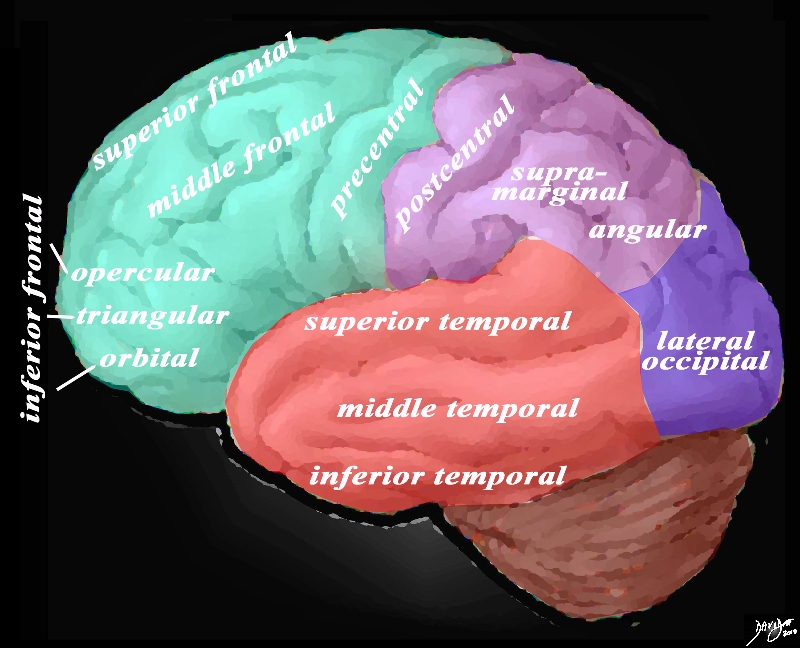The Common Vein Copyright 2010
Definition
Structure
The inferior frontal gyrus is limited above by the inferior frontal sulcus and below by the external border of the hemisphere in the front, and by the Sylvian fissure behind. Its width is about 4-5 cm, its height between 2-2.5 cm.
It has a portion called the operculum which refers to the part located behind the ascending ramus of the Sylvian fissure. The Sylvian fissure also has an anterior ramus that separates an orbitary portion anteriorly and a triangular portion posteriorly (which lies anterior to the ascending ramus).
Function
The triangular shaped operculum is denominated Broca’s area, who found it to be responsible for the motor component of speech in the dominant hemisphere, which involves related functions of the lips, tongue, larynx, and pharynx coordinated so as to produce phonation.
Disease
Lesions in Broca’s area, such as those caused by stroke from reduction in blood flow in cortical branches of the middle cerebral artery, on the language-dominant side, cause Broca’s aphasia, which is determined by reduction or loss of motor speech, as well as agraphia, and apraxia of the face, lips, and tongue.
 Overview of the Gyri – Lateral View Overview of the Gyri – Lateral View |
|
The lateral view of the brain shows the frontal lobe (green) parietal lobe (light mauve), the occipital lobe (purple) and the temporal lobe (red) In this view the frontal lobe gyri that are visible are; superior frontal, middle frontal, inferior frontal and precentral gyri. The inferior frontal gyri include the opercular, triangular and orbital. The parietal gyri include the post central, supramarginal, and angular gyri. The occipital gyrus that is visible is the lateral occipital. The temporal lobe gyri include the superior, middle and inferior temporal gyri. Courtesy Ashley Davidoff MD Copyright 2010 83029d05g.8 |
